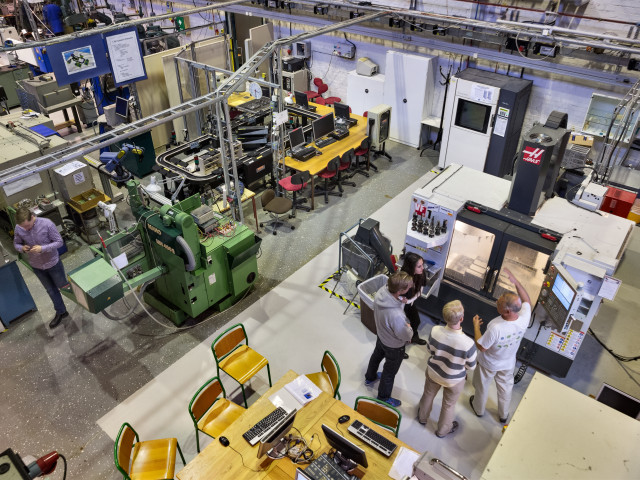- Theoretical basis in luminaire design: methodology and tools.
- Luminaire design history.
- Character of light sources and their fields of application.
- Lighting distribution, reflector constructions and material features, as reflection, transmission, refraction and absorption.
- Laboratory tests measurements of full-scale mock-ups.
- Technologies, materials and electrical components.
- Standards, specifications and rules for technical fixtures
- Sustainability, economy and marketing.
HS2006 Luminaire Design 15.0 credits

Information per course offering
Course offerings are missing for current or upcoming semesters.
Course syllabus as PDF
Please note: all information from the Course syllabus is available on this page in an accessible format.
Course syllabus HS2006 (Autumn 2010–)Content and learning outcomes
Course contents
Intended learning outcomes
- Students should be able to describe the historical evolution of luminaires in relation to technological and socio-cultural aspects and analyse the state of the art.
- Students shall practice the luminaire design process from concept phase till prototype construction.
- Students must develop the design for a new luminaire and justify the design decisions in terms of the knowledge previously acquired, the connection with the year’s course theme and the available technical possibilities.
- Students shall examine the manufacturing processes suitable for the mass-production of their product.
Literature and preparations
Specific prerequisites
Eligibility for the programme Architectural Lighting Design or the programme Architectural Lighting Design and Health.
Literature
M.Rea, Lighting Handbook, 9th ed., IESNA, NY, 2000
To be complemented during the course.
Examination and completion
Grading scale
Examination
- INL1 - Assignments, 2.0 credits, grading scale: P, F
- INL2 - Assignments, 1.5 credits, grading scale: P, F
- INL5 - Assignments, 7.5 credits, grading scale: P, F
- INL3 - Assignments, 1.0 credits, grading scale: P, F
- INL4 - Assignments, 3.0 credits, grading scale: P, F
Based on recommendation from KTH’s coordinator for disabilities, the examiner will decide how to adapt an examination for students with documented disability.
The examiner may apply another examination format when re-examining individual students.
If the course is discontinued, students may request to be examined during the following two academic years.
Project (team work, process, concept, result) and workbook (report of lectures, process and reflections). 80% attendance.
Examiner
Ethical approach
- All members of a group are responsible for the group's work.
- In any assessment, every student shall honestly disclose any help received and sources used.
- In an oral assessment, every student shall be able to present and answer questions about the entire assignment and solution.